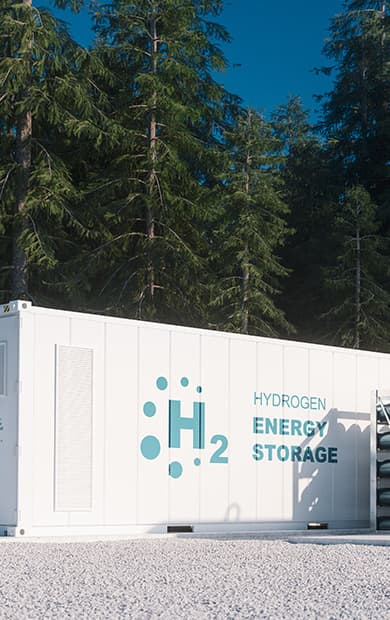Overview
Hydrogen plays a core role in global decarbonisation strategies. But its deployment is non-standard, being industry, nation and company specific. The Argus Hydrogen and Future Fuels service (AHFF) helps users navigate carbon-intensity reduction more efficiently.
Hype, optimism and wildly divergent data have surrounded the hydrogen sector for years. This has left companies describing difficulties from different assumptions held by delivery, management and board members. AHFF delivers a unified source of high-quality news on policy, technology and industry, plus analysis, production costs and databases, putting transparent, precise data in all decision-maker's hands.
Key features
Industry news
Real time news from our global team of industry-spanning reporters on decarbonised hydrogen, ammonia, methanol, SAF and more.
Production costs
800+ mass-balanced hydrogen and ammonia costs, covering all major production routes in key global locations.
Offtake linkages
The Japan Korea Low-carbon Ammonia Benchmark is for use in long-term offtake contracts, which can last for over ten years. The index tracks the all-in landed cost of US-produced ‘blue ammonia’ into Japan or Korea.
Decarbonisation spreads
Track subsidy values in countries incentivising the use of green hydrogen over blue or grey alternatives – including France, Germany, Netherlands.
Databases
Including tender details and offtake agreements, electrolyser capacities and sales, and planned capacities for e-methanol, e-SAF and synthetic natural gas.
Customised dashboards
Powerful, real-time visualisation tool designed to make market analysis faster. Use out-of-the-box templates or customise and save your own.
Weekly round-up service
Coverage of important news, analysis and cost information from around the world each week.
Access to specialists
Cross-check your understanding of new events, learn about trends in offtake negotiations, request new ancillary datasets, and more.
Customers that benefit
-
Decarbonising ‘hard-to-abate’ sectors
Gain insight into the cost of decarbonising existing refining, fertiliser production or hydrogenation operations.
-
Industrial heat
Hydrogen can substitute existing fossil-fuel sources for process heat used in the preparation or treatment of materials, whether minerals, metals, glass or food preparation. Understand the available options and costs.
-
Power generation
Coal and gas-fired power plants can substitute decarbonised ammonia for coal or decarbonised hydrogen with natural gas. Analyse the cost gaps, relative to unabated feedstocks.
-
Oil and gas
Low-carbon teams are assessing use opportunities to substitute unabated ‘grey’ hydrogen in existing operations, as well as becoming outright producers of decarbonised H₂. Teams focusing on different carbon-intensity H₂ in different jurisdictions will benefit from data customised to their region-specific needs.
-
Financial markets
A clear, comprehensive view on a sector with a forecast total addressable market of as much as $250bn by 2030. Evolving costs, manufacturing and production capacity, through to corporate activity.
-
Hydrogen technology companies
Get expert coverage and insight across the chain, from abated fossil-derived hydrogen, through renewable-fed electrolysers.
-
Diesel substituting industries
Whether construction firms (distributed power), data centres (back-up power), or mining firms decarbonising logistics chains, this service provides critical decision-making information.
-
Marine fuels markets
As firms look beyond LNG for decarbonising fuel supply, this service provides information on hydrogen, ammonia and eMethanol, within the context of energy volume and efficiency.
-
H₂ and derivative product producers
Hydrogen producers and users of technologies like electrolysers and CCUS require information to understand how demand for hydrogen changes if the process of producing it has a larger carbon footprint. This service provides crucial data for validating production costs vs peers or alternative production routes. The same data can be used as the basis for standardised offtake agreements with customers.
-
EPCM service providers
Real-time information on the ‘hot’ sectors and geographies leaning into hydrogen, for agile pinpointing of sales and marketing efforts.
Product specifications
Timely, dependable market data so you can make confident strategic decision on hydrogen-focused projects.
Key price assessments
Argus prices are recognised by the market as trusted and reliable indicators of the real market value. Explore some of our most widely used and relevant price assessments.


